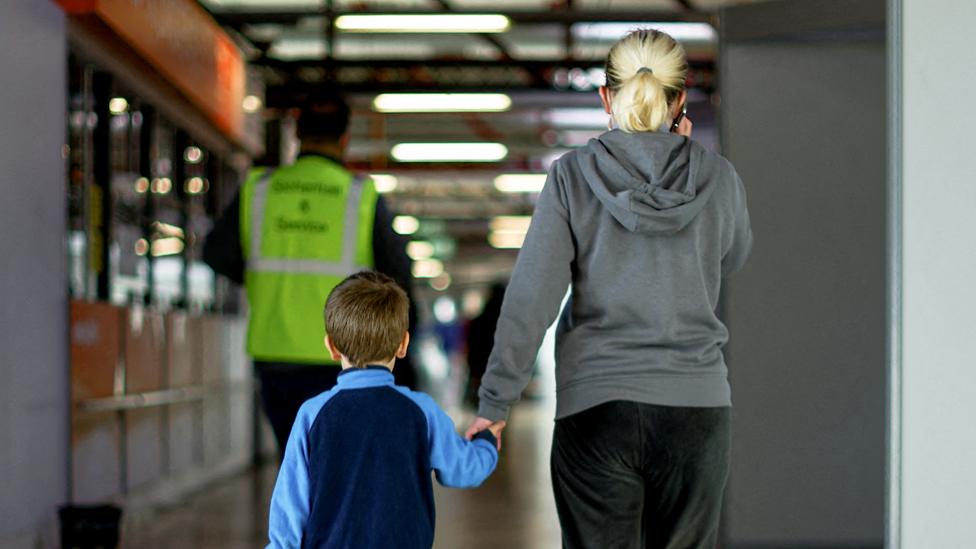Germany to ease entry rules for skilled workers
- Published

Germany faces a shortage of workers in construction, health care and IT
Germany's government has agreed to relax its immigration laws with the aim of attracting skilled workers to its jobs market.
The cabinet wants a Canadian-style points system to bring in workers who speak German or have relevant skills.
Germany has the biggest economy in Europe but experts say it needs an extra 400,000 immigrant workers a year.
Interior Minister Nancy Faeser said the reforms would create "the most modern law on immigration in Europe".
Criticising the proposals, conservative opposition leader Friedrich Merz said Germany was failing to exploit the potential it already had and that it had more than two million people unemployed.
It already benefited from EU-wide freedom of movement, he said, but people did not want to move to Germany because "the bureaucracy is terrible, the taxes are too high".
Germany suffers from an ageing workforce and a lack of workers in construction, health and IT. Labour Minister Hubertus Heil said seven million skilled workers would be needed by 2035.
"We need people who will help us to maintain our prosperity in this country," said Rainer Dulger of the BDA employers' confederation.
The three-party ruling coalition wants to introduce an "opportunity card", based on a points system that would assess non-EU applicants by taking into account factors such as language skills and education.
The process for recognising foreign qualifications would be simplified and unskilled workers would also be allowed in to fill certain sectors.
It could take months before the proposals go before the Bundestag, Germany's parliament, but Economics Minister Robert Habeck said there was now an urgency to tackle the issue: "We have known for years that we will have a demographic problem, but not enough has been done."
The planned immigration reforms come hard on the heels of proposals to shorten the time for immigrants living in German to obtain citizenship. Instead of waiting up to eight years, Chancellor Olaf Scholz said people would be able to become citizens in some cases after only three.
Applicants can currently reduce their wait to five years if they prove integration including German language skills, and that would be further cut under the new bill.
The government also plans to change the constitution to allow dual citizenship, which is largely banned in Germany.
Mr Scholz said this week that Germany had become "a country of hope" for people who wanted to build new lives and that immigrants "are bringing Germany forward".
However, not everyone is happy with the citizenship reforms within the government, made up of the Social Democrats (SPD), Greens and liberal Free Democrats (FDP).
FDP General Secretary Bijan Djir-Sarai warned that his party would accept "devaluation" of Germany citizenship.
It was not the time to simplify the citizenship law, he said, when the government had not yet made progress in deporting those with no legal right to stay in Germany and in curbing illegal immigration.
Related topics
- Published30 November 2022

- Published4 September 2022

- Published4 November 2022
